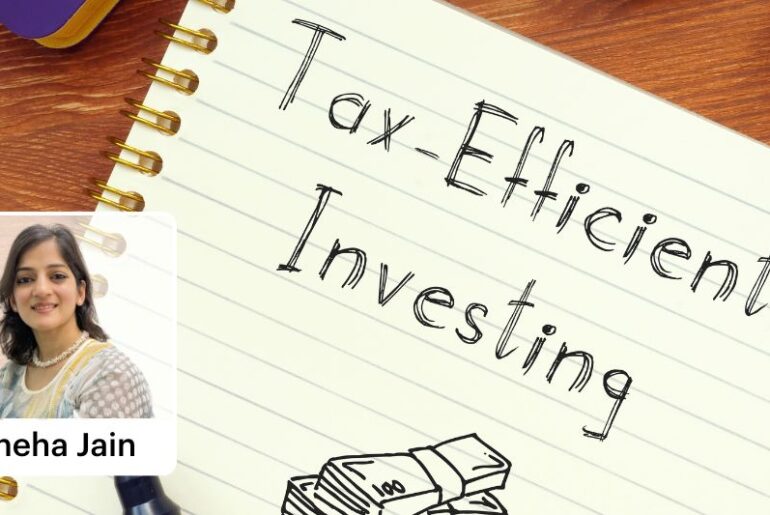Last Updated on Jun 6, 2023 by Harshit Singh
Obtaining a home loan is the typical choice for someone who wishes to buy their dream house. By having a clear idea of different tax exemptions under The Income Tax Act 1961, you can plan your repayment plan better while availing of various tax exemptions. Here are various home loan tax benefits for both – principal repayment and interest payment.
Table of Contents
Home loan tax exemption under Section 24(b)
Tax deduction on interest paid on home loan
You can deduct up to Rs. 2 lakh annually on the interest paid towards your home loan under section 24(b) of the Income Tax Act. For the deduction, the property must be self-occupied or rented out, and its construction or acquisition should be completed within 5 yrs.
Tax deduction on interest payment of a joint home loan
Joint home loans often come with lower interest rates compared to individual loans, which comprehensively reduces the overall financial burden. Under Section 24(b), each borrower can claim up to Rs. 2 lakh for interest payment. Additionally, if the loan is taken for an under-construction property, co-borrowers can claim deductions on the interest paid during the construction period.
Home loan tax exemption under Section 80C
Tax deductions on principal repayment
Despite interest rate hikes, buying a new home is a popular trend in 2023, and under Section 80C of the Income Tax Act, you can avail a tax deduction of up to Rs. 1.5 lakh per financial year on the principal repayment portion of the home loan EMIs. This deduction is applicable only after the completion of the construction of the residential property.
Tax deductions on stamp duty and registration charges
Under Section 80C of the Income Tax Act, a tax deduction of up to Rs. 1.5 lakh can be claimed for stamp duty and registration fees, provided it falls within the overall limit applied to principal repayment. This deduction is available regardless of whether a home loan is taken. Additionally, interest paid during construction can be deducted in five equal installments once construction is completed.
Note: Please be aware that the aforementioned deductions are applicable only when the property is self-occupied. It is crucial to note that if you sell the property within five yrs from the end of the financial year you acquired possession of it, these benefits will be nullified or reversed.
Tax deduction on principal repayment of joint home loan
Compared to a home loan taken by a single applicant, having joint borrowers doubles the available deductions. Each borrower can claim up to Rs. 1.5 lakh under Section 80C for the principal amount. However, to be eligible for these deductions, both applicants must be co-owners of the property and actively contribute to servicing the EMIs.
Home loan tax exemption under Section 80(EEA)
To claim an additional deduction of Rs. 1.5 lakh on interest payment, on top of Rs. 2 lakh under Section 24(b); you can refer to Section 80(EEA). This section was introduced to expand the benefits of Section 80EE for first-time homeowners. To be eligible for the 80(EEA) income tax deduction, your house should have a cost of Rs. 45 lakh or less. Furthermore, this deduction can be claimed if your loan was sanctioned between 1st April 2019 and 31st March 2022.
Home loan tax exemption under Section 80(EE)
Section 80EE of the Income Tax Act offers additional tax benefits. Under this provision, you can claim a deduction of up to Rs. 50 thousand on the interest paid towards your home loan. To be eligible for this deduction, the property’s value should be at most Rs. 50 lakhs and the loan amount should not exceed Rs. 35 lakhs.
To sum up, here are housing loan tax exemptions under different sections –
| Exemption | Section of the Income Tax Act | Maximum Deduction |
| Interest | 24b | Rs. 2 lakh |
| Interest | 80EEA | Rs. 1.5 lakh |
| Interest | 80EE | Rs. 50,000 |
| Principal | 80C | Rs. 1.5 lakh |
| Stamp Duty | 80C | Rs.1.5 lakh |
Conclusion
People are often scared of getting home loans as they can be cumbersome to manage and repay. Understanding these exemptions allows you to effectively plan your repayment strategy while benefiting from deductions on both principal repayment and interest payment. Make the most of the available home loan tax benefits and achieve your homeownership goals with financial confidence.
- Credit Limit Overutilised - Sep 9, 2025
- Best Gold Companies in India (2025) - Jun 5, 2025
- Top Adani Group Stocks in India (2025) - Jun 4, 2025





